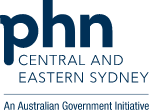ACON provide confidential FREE short-term person centred alcohol and/or drug counselling (12 sessions) for people of diverse gender and sexuality, their partners, family and friends. Counsellors use evidence based therapeutic approaches to support behaviour change and provide harm reduction psycho education to assist clients to better understand and manage their use, reduce or quit, and improve their mental and physical health outcomes.
Aftercare support can also be arranged for clients who are exiting residential treatment programs. Clients of the Substance Support Service are also supported to access detox and residential rehabilitation as required and are followed up in preparation to leaving as part of a transition plan. In planning for the end of treatment, counsellors work with clients to develop skills and strategies for relapse prevention, harm minimisation and self-care. Counsellors also help clients identify the formal and informal support networks and groups available and appropriate to them.
Clients can be linked in with a range of ACON’s programs including our care coordination and sexual health testing.
Eligibility
ACON’s Substance Support provides services to people of diverse gender and sexuality, their partners, family and friends over the age of 18.
How to access the service?
This service is offered in Sydney and across the state and is currently available by video and phone due to COVID restrictions. We hope to resume face to face sessions in our Sydney office once the restrictions ease.
We can update this once we open our offices and provide face to face sessions.
For more information or to undertake a brief assessment please contact our Sydney office or submit an enquiry. Phone: 02 9206 2000
Evaluation of ACON’s Substance Support Service
The Substance Support Program is one of few drug and alcohol services in Australia that is specifically designed for people of diverse sexuality and gender. University of New South Wales (UNSW) conducted an evaluation that examines the impact of the service on clients’ substance use and psychological wellbeing, and whether clients of the service reported different treatment outcomes to clients attending mainstream services.
Read the full evaluation report here.
More information can be found here.





